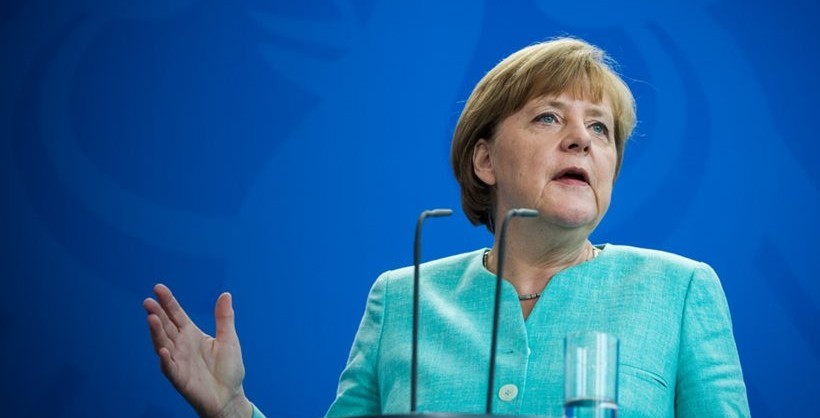German Chancellor Angela Merkel on Tuesday reiterated that there was still an open channel of communication between creditors and capital control-shocked Greece
She spoke in Berlin during a during a joint press conference with the visiting PM of Kosovo, Isa Mustafa.
Merkel made it clear, however, that she was not aware of any new proposal on the table by European Commission President Jean-Claude Junker regarding Greece.
“The only proposal I am aware of is the one tabled on Friday,” she said. Meanwhile, according to German media, Merkel believes there is no chance of striking a last-minute deal with the radical leftist government in Greece. German magazine Spiegel reported that the German chancellor was willing to make concessions to Greek PM Alexis Tsipras, including a reference to debt restructuring and investments amounting to 35 bln euros. However, that was before Tsipras called a surprise snap referendum in the middle of the night on creditors’ last proposal.
Chancellor Angela Merkel told German lawmakers Tuesday that her government will not enter into new aid negotiations with Greece’s radical leftist government before this Sunday’s urgently called referendum, one MP was quoted by AFP as saying.
“Before the referendum Germany can’t negotiate a new request” for bailout assistance, she was quoted as saying by a MP of her conservative Christian Democrats.
Meanwhile, despite a high-profile support for a “no” vote by Greek voters on Sunday, mostly by left-leaning intellectual and economists, but not exclusively, WSJ reports that opinion polls in Germany favor Merkel’s continued tough stance vis-a-vis the Tsipras government.
Polls taken before and after the breakdown of talks between creditors and Athens show solid support for the German chancellor on the issue.
Speaking on Monday, she said if Greece wanted to remain in the eurozone, it would have to implement the unpopular economic reforms that Tsipras and his leftists reject.

































